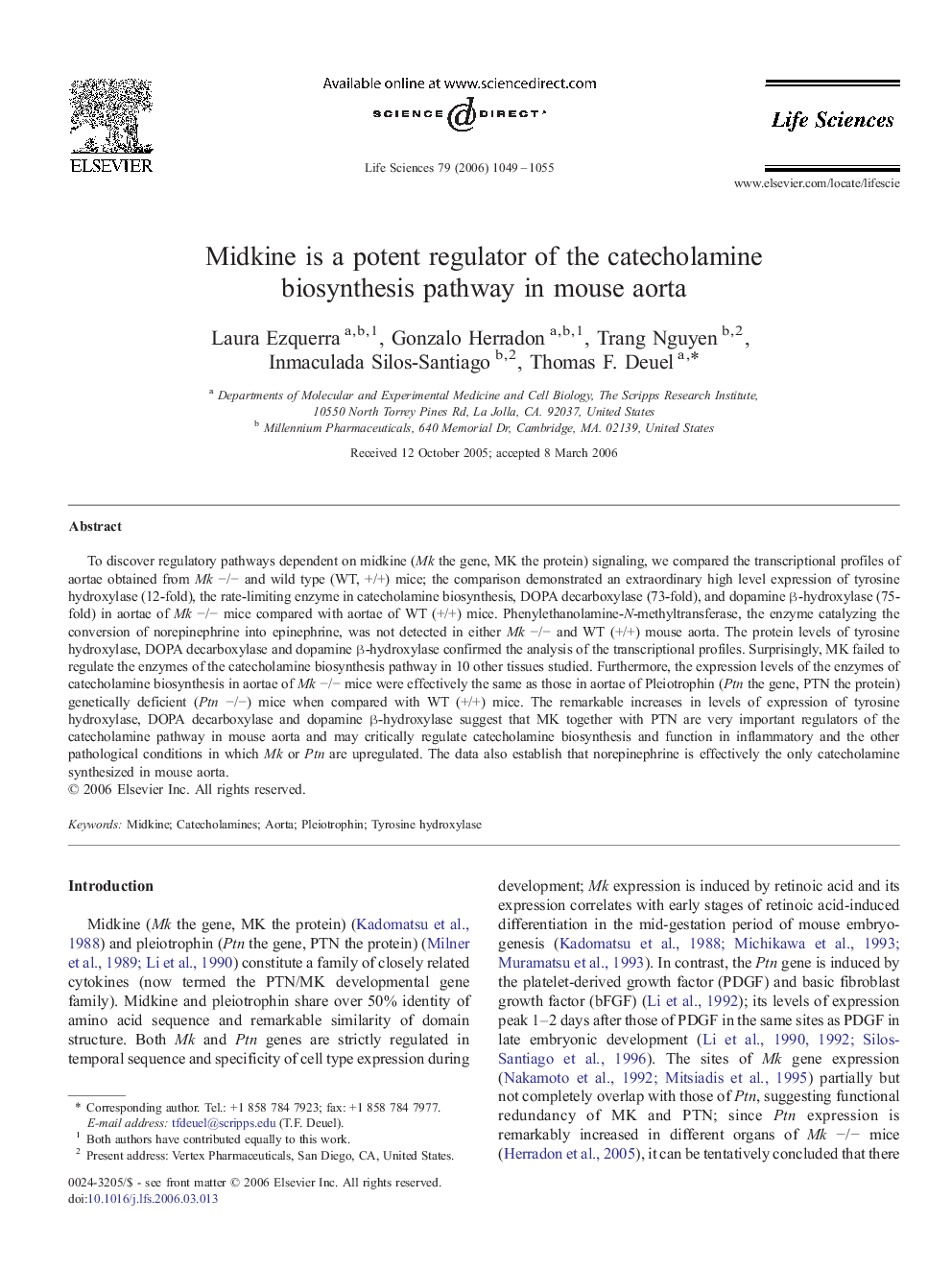| Article ID | Journal | Published Year | Pages | File Type |
|---|---|---|---|---|
| 2554056 | Life Sciences | 2006 | 7 Pages |
To discover regulatory pathways dependent on midkine (Mk the gene, MK the protein) signaling, we compared the transcriptional profiles of aortae obtained from Mk −/− and wild type (WT, +/+) mice; the comparison demonstrated an extraordinary high level expression of tyrosine hydroxylase (12-fold), the rate-limiting enzyme in catecholamine biosynthesis, DOPA decarboxylase (73-fold), and dopamine β-hydroxylase (75-fold) in aortae of Mk −/− mice compared with aortae of WT (+/+) mice. Phenylethanolamine-N-methyltransferase, the enzyme catalyzing the conversion of norepinephrine into epinephrine, was not detected in either Mk −/− and WT (+/+) mouse aorta. The protein levels of tyrosine hydroxylase, DOPA decarboxylase and dopamine β-hydroxylase confirmed the analysis of the transcriptional profiles. Surprisingly, MK failed to regulate the enzymes of the catecholamine biosynthesis pathway in 10 other tissues studied. Furthermore, the expression levels of the enzymes of catecholamine biosynthesis in aortae of Mk −/− mice were effectively the same as those in aortae of Pleiotrophin (Ptn the gene, PTN the protein) genetically deficient (Ptn −/−) mice when compared with WT (+/+) mice. The remarkable increases in levels of expression of tyrosine hydroxylase, DOPA decarboxylase and dopamine β-hydroxylase suggest that MK together with PTN are very important regulators of the catecholamine pathway in mouse aorta and may critically regulate catecholamine biosynthesis and function in inflammatory and the other pathological conditions in which Mk or Ptn are upregulated. The data also establish that norepinephrine is effectively the only catecholamine synthesized in mouse aorta.
